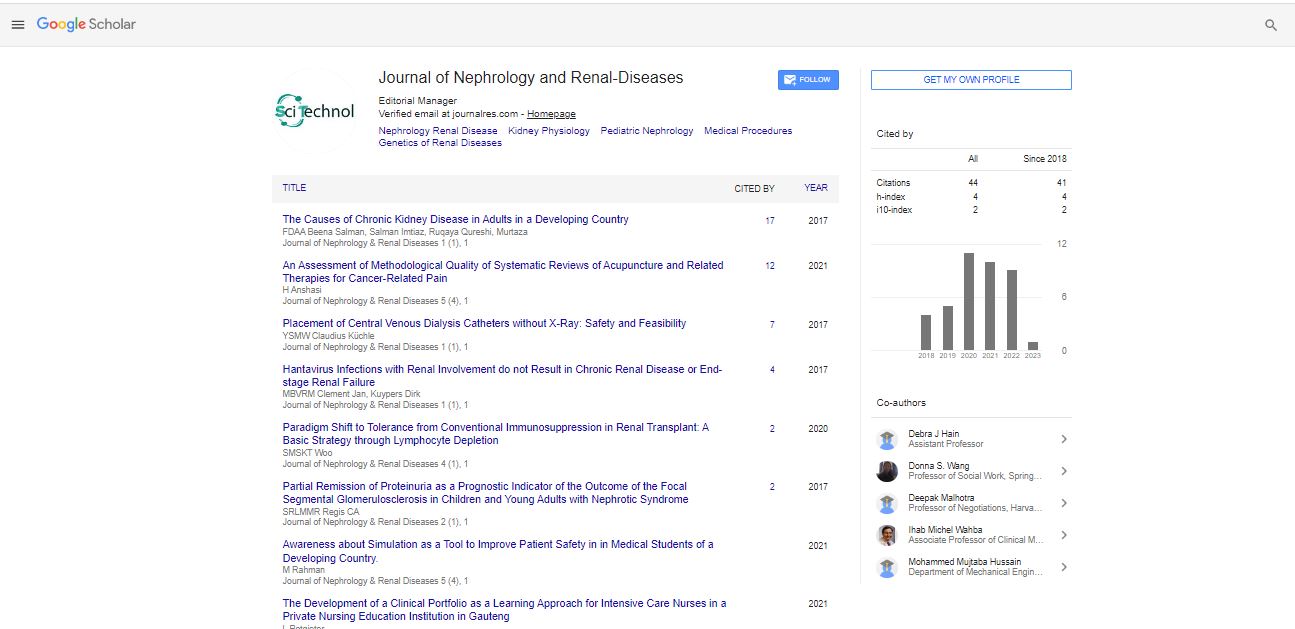Risk factors of antibody mediated rejection after kidney transplantation
Mouna Malki Abidi
Hospital Charles-Nicolle
: J Nephrol Ren Dis
Abstract
Background and Aims: Antibody mediated rejection (ABMR) is a serious complication after kidney transplantation (KT). If the characteristics of ABMR after KT are widely documented in the international literature, to our knowledge few studies have focused on this pathology in the Tunisian renal transplant population. The aim of our work was to analyze the predictive factors of ABMR after KT in Tunisian population. Method: We conducted a retrospective comparative case-control type study, concerning ABMR in KT in our department, between January 1st, 2006 and December 31st, 2017. Comparing a group of cases with ABMR evoked histologically, according to the 2013 Banff classification, to a group of controls matched by age, gender and date of KT. We first conducted a univariate analysis to identify the factors significantly associated with ABMR. Subsequently, we performed a multivariate analysis using the Cox model, fitted to the associated variables in univariate analyses at the threshold (p<0.05). Results: The frequency of ABMR was 27.8% among graft biopsies performed on indication. We compared the ABMR group (40 patients) to the non-ABMR group (80 controls).Compared to the univariate analysis, the multivariate analysis identified only the following factors as independent risk factors for the occurrence of ABMR: Conclusion: In conclusion in order to minimize the risk of ABMR after KT, it is important to conduct an immunological assessment previous to KT. It will be necessary to make a screening of immunizing factors, to ensure immunological follow-up and to favor a compatible KT with the minimum of human leucocyte antibodies mismatch. It’s also important to avoid acute graft dysfunction of non-immunological causes after KT.
 Spanish
Spanish  Chinese
Chinese  Russian
Russian  German
German  French
French  Japanese
Japanese  Portuguese
Portuguese  Hindi
Hindi 
